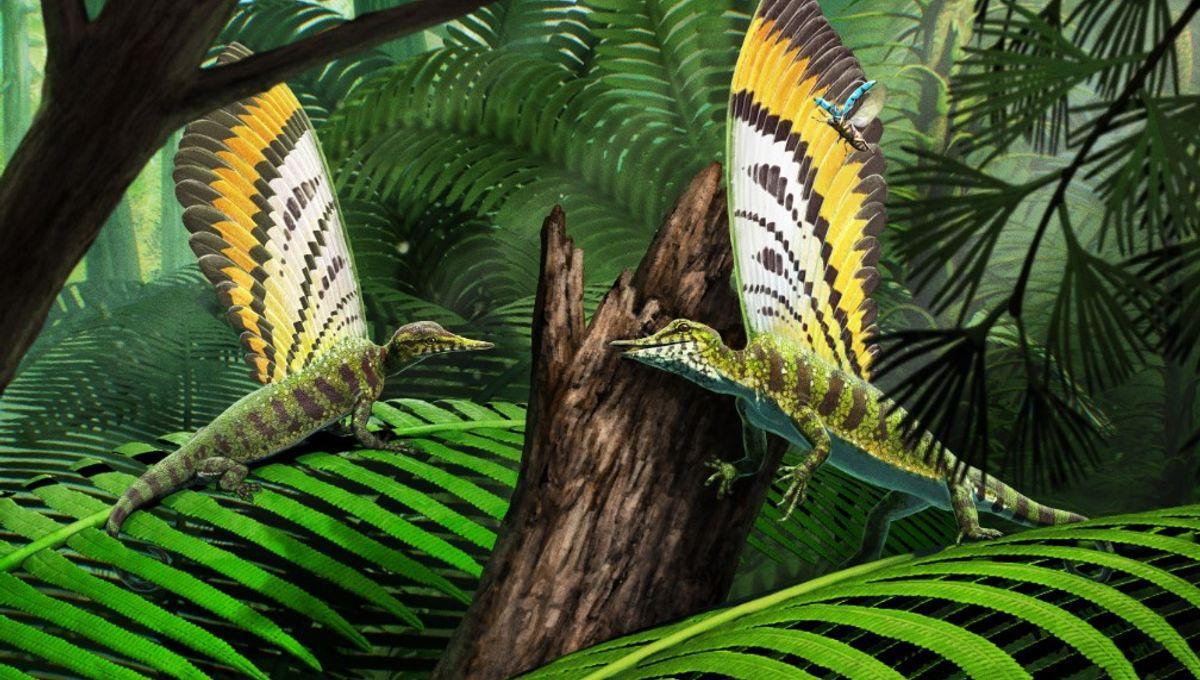-
Ροή Δημοσιεύσεων
- ΑΝΑΚΆΛΥΨΕ
-
Σελίδες
-
Blogs
-
Forum
247-Million-Year-Old Punky Reptile Had A Mohawk Made Of Weird Appendages

247-Million-Year-Old Punky Reptile Had A Mohawk Made Of Weird Appendages
Two exceptionally well preserved reptile skeletons dating back to the Triassic period have totally rewritten our understanding of the evolution of skin appendages such as feathers and hair. Known as Mirasaura grauvogeli – meaning "Grauvogel's Wonder Reptile" – the strange prehistoric creature appears to have sported a crest of odd accessories on its back, demonstrating that these features are not unique to birds and mammals.
And while the function and morphology of these skin protuberances differs from that of both hair and feathers, the new discovery shows that the genetic roots of skin appendages likely predate the emergence of modern reptiles. Playing a role in flight, body heat regulation and sexual display, feathers are thought to have arisen in the stem lineages of birds and their closest fossil relatives, dinosaurs and pterosaurs. Hair, meanwhile, developed in the ancestors of modern mammals, and is used for insulation, camouflage, and sensory perception. Yet as Mirasaura grauvogeli demonstrates, the underlying genetic blueprint for these appendages goes back way further and may have first appeared in the early amniotes, a clade of vertebrates encompassing birds, mammals, and reptiles. Based on two complete skeletons as well as 80 additional specimens featuring soft tissue and appendages, the authors of a new study found that the creature had a row of long plumes running down its back, with appendages ranging up to 153 millimeters (6 inches) in length. Further analysis revealed that these odd structures contained pigment-producing cells called melanosomes, which closely resembled those found in feathers but differed from those seen in mammalian hair. Despite this, the study authors insist that Mirasaura’s appendages are not feathers as they lack the branching structures – known as barbs – that are characteristic of avian plumage. This suggests that the Triassic reptile’s punk-like attachment probably evolved independently from feathers, yet owed its existence to the same ancient genetic toolkit possessed by birds and mammals. A Mirasaura fossil showing the animal's bird-like skull and the crest along the back. Image credit: Stephan Spiekman “The fact that we have discovered such complex skin appendages in such an ancient group of reptiles sheds a new light on their evolution,” explained study author Stephan Spiekman in a statement seen by IFLScience. “Mirasaura is even older than the dinosaurs and not closely related to them.” First discovered in the 1930s by French palaeontologist Louis Grauvogel, the species belongs to a group of highly unusual extinct reptiles called drepanosauromorphs, which had bird-like skulls but lived in trees and used their tails, hands, and claws for grip. It wasn’t until 2019, however, that the crest was first spotted by researchers examining Mirasaura specimens in a museum collection. It’s unclear exactly what the reptile used its appendages for, although the study authors point out that the structures couldn’t have provided warmth or assisted with flight since they only covered a single strip down the animal’s back. They therefore suggest that the most likely function for this appendage was related to signaling, either as a form of communication with other members of the same species or to deter predators. Summing up the significance of the discovery, Spiekman says that “Mirasaura provides the first direct evidence that such structures actually did form early on in reptile evolution, in groups not closely related to birds and extinct dinosaurs.” The study is published in the journal Nature.


